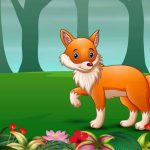Farming activities provide an enriching and educational experience for young children. In today’s fast-paced, technology-driven world, it’s beneficial to connect preschoolers and toddlers with nature and the basics of food production. This article explores a variety of farm activities for preschoolers and toddlers, highlighting the difference between farm and non-farm activities, and offers examples of different farming activities that can be both fun and instructive.
What Are Farming Activities?
Before diving into specific activities, it’s crucial to understand what farming activities entail. Farming activities are tasks related to agriculture and animal husbandry. They include planting, harvesting, feeding animals, and understanding the growth cycles of plants and animals. Engaging children in these activities can provide them with hands-on experience and a deeper appreciation for where their food comes from.
Difference Between Farm and Non-Farm Activities
The primary difference between farm and non-farm activities lies in their connection to agriculture. Farm activities are directly related to farming and agriculture, such as planting seeds or collecting eggs from hens. Non-farm activities, on the other hand, do not have this agricultural connection. They might include general play or learning activities not related to farming, such as drawing or playing with blocks.
Farm Activities for Preschoolers
- Engaging in Planting
- Feeding Farm Animals
- Interactive Farm Visits
- Watering and Weeding
- DIY Mini Greenhouses
- Exploring the Farm Environment
One of the most engaging farm activities for preschoolers is planting. This can involve starting seeds in small pots, which children can then watch grow over time. This activity not only teaches patience and responsibility but also offers a hands-on lesson in the life cycle of plants.
Visiting a local farm and participating in feeding the animals is another enriching experience. Toddlers and preschoolers can learn about the different diets of farm animals and the importance of caring for them. This activity fosters empathy and a sense of responsibility.
Visiting a farm where children can interact with the environment is a fantastic way to teach them about different farming activities. They can participate in gathering eggs, learning about composting, or even understanding how a tractor works. These visits make the farm more than just a place but an interactive learning environment.
Involve children in the daily tasks of watering and weeding a garden. These activities not only teach responsibility but also show the effort needed to maintain healthy plants. They are simple yet effective ways to introduce preschoolers to the basics of plant care.
Creating mini greenhouses using recycled materials is a creative and educational project. Preschoolers can learn about the greenhouse effect and observe how seeds sprout and grow in a controlled environment. This project combines science, craft, and environmental education.
Simply exploring a farm can be an educational activity. Children can learn about different farming activities by seeing them in action, such as milking cows or harvesting vegetables. This real-world experience is invaluable in teaching them about the sources of their food.
Farm Activities Examples for Toddlers
- Sensory Bins
- Farm-themed Storytelling
- Farm Animal Crafts
- Farm-themed Puzzles and Games
- Interactive Farm Songs and Dances
- Role-playing Farmer or Gardener
For toddlers, sensory bins filled with farm-related items like corn kernels, small farm animals, and tractors can provide hours of exploratory fun. These activities aid in the development of fine motor skills and sensory exploration.
Engaging toddlers in farm-themed storytelling can spark their imagination and curiosity about farming activities. Reading books about farms and then discussing the content can be both educational and entertaining.
Crafts are a fantastic way for toddlers to learn about farm animals while honing their creative skills. Simple activities like making animal masks or painting farm scenes can be both fun and informative.
Educational puzzles and games featuring farm animals and farming equipment can be both entertaining and informative. These activities can develop cognitive skills while introducing toddlers to farm life and its various components.
Songs and dances about farming can be a fun and active way to teach toddlers about different farming activities. These activities can be a joyful way to learn about the sounds and roles of various farm animals and machinery.
Role-playing as a farmer or gardener can stimulate a child’s imagination and teach them about farming. Dressing up, using toy tools, and pretending to tend to crops or animals can be both fun and educational.
Different Farming Activities for Educational Fun
- Gardening Projects
- Farm-to-Table Cooking
- Nature Walks and Wildlife Observation
Gardening projects, such as growing a vegetable patch or a flower garden, are excellent examples of different farming activities that children can participate in. These projects teach children about the growth and care of plants and the satisfaction of seeing their efforts come to fruition.
Participating in farm-to-table cooking activities helps children understand the journey of food from the farm to their plate. Simple cooking projects using farm-fresh ingredients can be both a culinary and an educational experience.
Nature walks around a farm or in rural areas allow children to observe wildlife and learn about the natural environment. This activity can be particularly engaging for preschoolers, fostering a love and respect for nature.
Advanced Farming Activities for Enhanced Learning
- Seed Germination Experiments
- Understanding Crop Rotation and Sustainable Farming
- Farm-related Story Creation
Conducting seed germination experiments can introduce preschoolers to basic scientific concepts. Watching a seed sprout and grow over time provides a tangible lesson in plant biology and the life cycle.
For older preschoolers, introducing concepts like crop rotation and sustainable farming practices can be enlightening. Teaching them why farmers rotate crops or how sustainable practices benefit the environment can instill early environmental consciousness.
Encouraging children to create their own stories based on farm life can enhance their creative and linguistic skills. This activity can include drawing pictures, making up stories about farm animals, or describing a day on the farm.
Farm activities for preschoolers and toddlers offer a unique blend of education, fun, and practical life skills. These activities not only differentiate between farm and non-farm experiences but also provide a variety of learning opportunities. From planting and animal care to creative farm-themed crafts, the range of different farming activities available can engage young minds in a meaningful and enjoyable way. By integrating these activities into a child’s early learning, parents and educators can lay the groundwork for a lifelong appreciation of nature and an understanding of where their food comes from.
For more such interesting blogs, visit EuroKids.
















